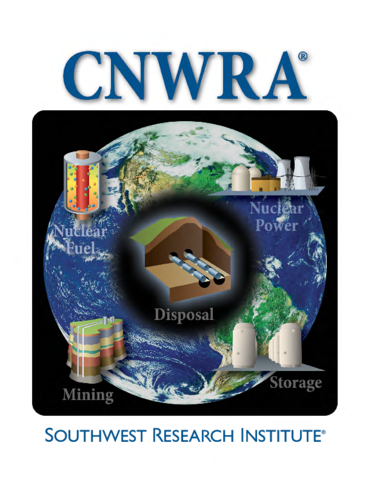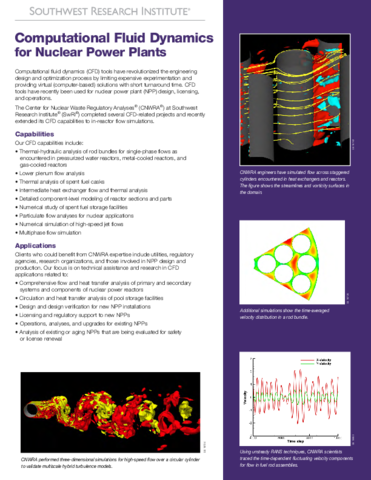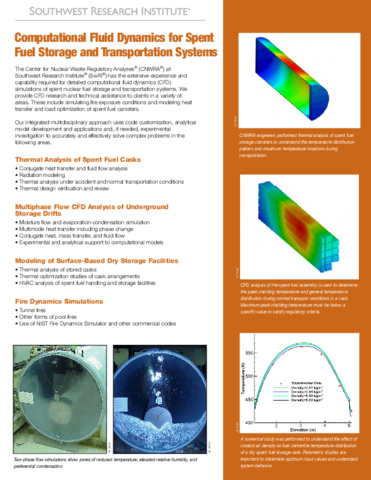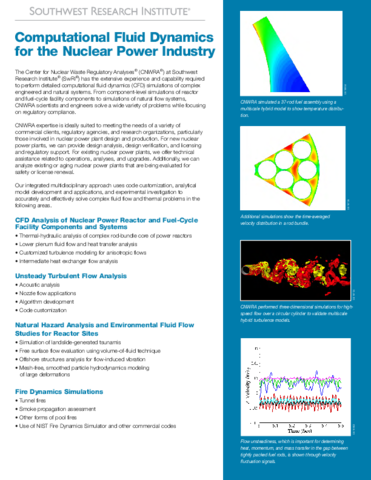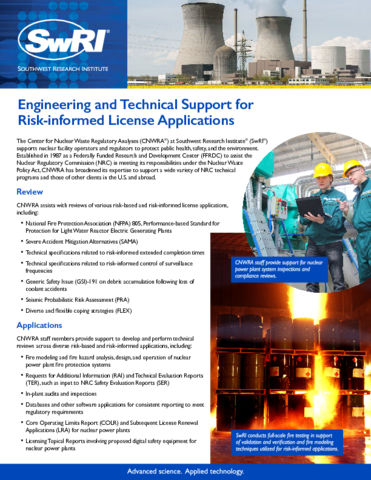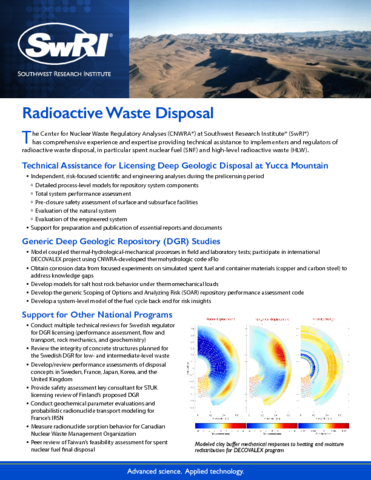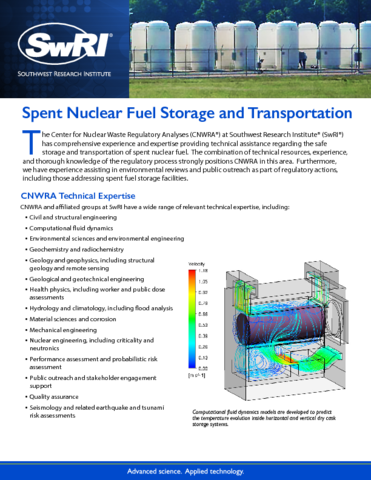SwRI provides technical evaluations in support of the licensing, inspection, and maintenance of facilities used across the nuclear fuel cycle. These evaluations are conducted by staff in the Center for Nuclear Waste Regulatory Analyses (CNWRA), a federally funded research and development center established in 1987 by the U.S. Nuclear Regulatory Commission (NRC). SwRI also offers a team of mechanical engineering experts who focus on nondestructive evaluation of nuclear reactors in compliance with federal and international regulations, as well as engineers and scientists who specialize in failure analysis of electrical, hydraulic, and mechanical components.
From initial licensing, to ongoing operations, to decommissioning, SwRI has the appropriate expertise to assist with nuclear fuel cycle services for the following facilities:
Nuclear Power Plants and Reactors
- U.S Commercial Nuclear Power Plants – CNWRA staff provide technical and regulatory support for licensing and decommissioning of commercial nuclear power plants, with a focus on facilities inside the United States. Our expertise includes conventional boiling water and pressurized water reactors, as well as next-generation reactor designs.
- Reactor Pressure Vessel Inspections [CJRM1] – SwRI’s Mechanical Engineering Division staff provide reactor pressure vessel inspections, nondestructive evaluation, and technical support in accordance with federal and international regulations.
- Reactor Component Failure Analyses – SwRI staff provide a wide range of failure analyses for reactor, balance of plant, and supporting systems. Failure modes and effects are evaluated for electrical, hydraulic, and mechanical components, with a focus on understanding the causes and preventing recurrence.
Nuclear Fuel Cycle Inspection and Licensing Areas
- Uranium Mining and Processing – Technical support and reviews for in-situ recovery (in-situ leach) and conventional uranium mining.
- Interim Storage – Licensing support for the storage of spent nuclear fuel at nuclear power plants, centralized interim storage facilities, and special purpose fuel-storage facilities.
- Radioactive Waste Disposal – Quantifying risk from natural and human-induced hazards and investigating geologic processes and events that may affect the performance of high-level waste repositories.
- Environmental Compliance – Environmental reviews under the National Environmental Policy Act (NEPA) and stakeholder engagement in communities near proposed nuclear facilities.
- Decontamination and Decommissioning – Radiological surveys and support services, including transport analysis and site characterizations to determine potential public dose from decontamination and decommissioning of nuclear facilities.
- Transportation Safety – Services include evaluating the integrity of canisters and waste packages proposed for spent nuclear fuel transportation from nuclear power plant sites to either a centralized interim storage facility a high level radioactive waste repository. A full range of normal, off-normal, and accident conditions are evaluated.


